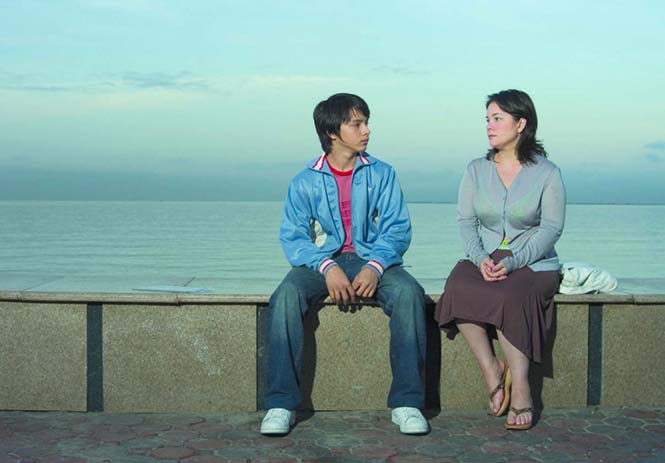When he was six years old, Lester Cristal remembered being woken up by the “loud annoying laugh of my father and his friends in the military.” He rolled out of bed, rubbed the sleep off his eyes, and then went down the stairs to see his father and his friends laughing at Dolphy portraying a stereotypical gay man in some movie.
“Right there and then I told myself that I was going to become a director,” Lester said, though at that point in time, it was just to elicit the same reaction he saw from his father and his friends, stereotypical “macho” men who did not openly show emotions.
Seemingly providential, Lester eventually studied filmmaking at De La Salle University-College of Saint Benilde. There, he started to embrace his queerness. This added a layer to his desire to make films – i.e. he realized did not only want to make people laugh, but to also tackle – this time “properly” – queerness (as opposed to the stereotypical depictions of Dolphy).
Lester recognizes that “films have always been a powerful medium in… influencing and educating people about certain topics and personal experiences.” But for decades, “stereotypical films about us have been (made and marketed to cater to the) taste of predominantly heterosexual audiences, which included my father and his friends. No one really took the time to really get to know us and our stories.” But with the emergence of queer cinema, this is changing and “I want to take part in it.”
QUEER ONSCREEN
With him behind the camera, the first film Lester made was SWELAS (2018), a short film that first landed on CineMaybank 2018, winning second best film and best screenplay. Showcasing the “famed craft of my hometown, Marikina”, it was also “a love letter to my father and to all our Filipino craftsmen.”
This was followed by KLOSETA (2019), which starred Ramon Busa, the president of the Home for the Golden Gays, and Zar Donato. This was “drafted out of my remorse towards my grandmother’s death.”
Lester also produced other short films and music videos, such as TONIGHT! (2019) and ANG’GULO (2019). The latter earned him and his production top prizes at local and intercollegiate film festivals, such as the .giff Festival of New Cinema, INDIE-UN Film Festival; as well as participating in international film festivals like Audience Awards LGBTQ Film Festival and Asian Pacific Film Festival.
PLUS.MINUS. is Lester’s latest film, telling the story of minority people in the already minority LGBTQIA community – i.e. a shoemaker owning a failing business amid an innovating industry, an urban migrant who’s trying to redeem herself from failing to fulfill her Manila dream, a lonesome gay watchmaker in his golden age thriving to be alive again, and an aspiring drag queen who desires to be loved.
Similar to his other films, “I always intend to present the concept of micro within the macro, personal stories against a backdrop of a larger one, a face in the crowd, human stories in the context of a societal one,” Lester said.
The movie was nominated for the 2020 Best Short Film on the Philippines’s oldest award-giving body for cinema, FAMAS Awards. It was also a finalist for last year’s Gawad Sining by the University of the Philippines.
INSPIRED BY EXPERIENCE
“I’m always open (to) experiencing new things, and these new experiences are my sources of inspiration,” Lester said, adding that these sources may be as “trivial” as talking to random strangers. But for him, “this approach enables me to make films that is relatable somehow.”
As a queer person making queer films, Lester knows he may be pigeonholed as a queer-centric filmmaker. But he’s not worried.
“I will not mind if I will be pigeonholed as an LGBTQIA filmmaker solely making films for this market because there’s a need for it,” he said. “We need diversity in representation and I can contribute to it, along with my fellow queer filmmakers.”
This also touches on his dream to at least be remembered as a filmmaker “who made a difference,” and as someone who “contributed somehow to the good of cinema and of this world.”
In the end, Lester believes that film can push LGBTQIA-related discourses forward.
“First, it is important to make positive LGBTQIA representations in cinema. Second, while it is important to tell coming out stories that are key to LGBTQIA experiences, it is just as important to present LGBTQIA characters in ‘normal’ situations. We are an oppressed group, it is important for us to frame our issues we feel passionate about in a way that connects to people on a personal level. This way, we can show who we really are and hopefully will open doors to a conversation about our experiences,” Lester ended.

























































































